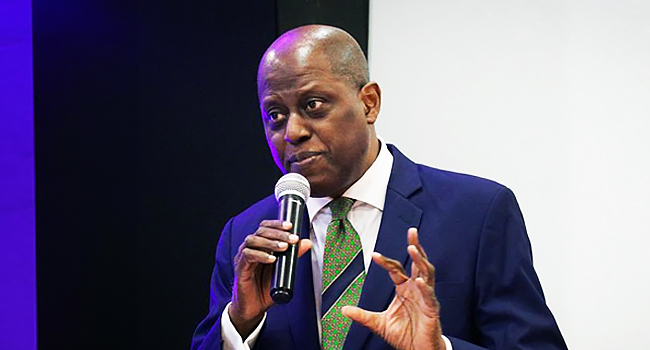Nigerian fintech companies, including OPay, and Palmpay, have been directed not to open new accounts for customers.
The Central Bank of Nigeria (CBN) gave the directive for the fintechs to stop accepting new customers until further notice.
Other affected companies are -Kuda Bank, and Moniepoint, who have all been linked to allegations of illicit foreign exchange transactions by their customers.
READ MORE: What Dangote, Others Said about Late Wigwe
CBN suspected the fintechs of carrying out illegal foreign exchange transactions as well as money laundering and terrorism financing.
Representatives from two of the affected companies have verified that the CBN’s directive is connected to these accusations.
However, they noted that the directive might be misdirected, as the majority of the implicated accounts belong to commercial banks, not fintech platforms.
“I can confirm that 90% of the accounts implicated in the illicit forex transactions are with commercial banks, and only 10% are with fintechs. Why then has the CBN not extended this directive to the commercial banks? We face a widespread issue here, and targeting fintechs seems like an unfair focus on the more vulnerable targets,” one of the sources explained.
1,146 Accounts Has Been Blocked
The CBN’s order is coming after the Economic and Financial Crimes Commission (EFCC) secured a court order to freeze at least 1,146 bank accounts owned by various individuals and companies allegedly involved in illegal foreign exchange transactions.
- Justice Emeka Nwite, in a decision on the ex-parte motion presented by the anti-graft agency’s lawyer, Ekele Iheanacho, also approved the commission’s request to complete the investigation within 90 days.
- Though the verdict was issued on April 24, its certified true copy was granted on Monday. The other offenses under investigation by the EFCC involve money laundering and terrorism financing.
- A look at the list of the affected accounts shows that indeed most of the bank accounts involved are mostly deposit money bank accounts.
- In its request for the order to block the accounts, the EFCC disclosed that its preliminary investigation revealed that the bank accounts are linked to persons who take advantage of the virtual cryptocurrency exchange platforms to illegally manipulate the value of Naira and launder the proceeds of unlawful activities.
It also cited the need to preserve the funds in the identified bank accounts pending the conclusion of the investigation and possible prosecution.
Opay, Palmpay, And other Fntechs Are On Target
Despite a court order regarding the blockage of accounts, which revealed that the majority of the accounts linked to the purported illegal forex trading belonged to commercial banks, there has been no instruction given to the banks to cease accepting new customers.
According to one fintech industry source who would not want to be named, this shows that there is a stronger and better relationship between the banks and the CBN compared with fintechs.
“In terms of KYC, the fintechs are doing better than the banks, but all eyes seem to be on the fintechs whenever the issue of KYC occurs.
“On the issue of payment fraud, fintechs are also often seen as the platforms where frauds happen, but this is an industry-wide problem. If you see the amount of money the banks are losing to fraud, you will marvel. No fintech can lose that amount of money and remain in business,” the source said.
You Should Also Know That
In March, the Central Bank argued that the naira, which experienced record lows in 2024, is being manipulated by speculators after Olayemi Cardoso, the Central Bank’s governor, claimed that $26 billion passed through Binance in a year from “sources and users who we cannot adequately identify.” It informed a crackdown on the global cryptocurrency exchange Binance.
Since then, two Binance executives have also been charged with tax evasion and money laundering and Binance has restricted peer-to-peer trading.
In December, the CBN mandated all financial institutions to collect ID cards before creating financial accounts, which contradicts a 2013 central bank rule designed to support financial inclusion that allowed Nigerians to open accounts without identity cards. In the same month, the Nigeria Inter-Bank Settlement System (NIBSS) asked banks and mobile money operators to delist unlicenced fintechs from directly accepting consumer deposits.










